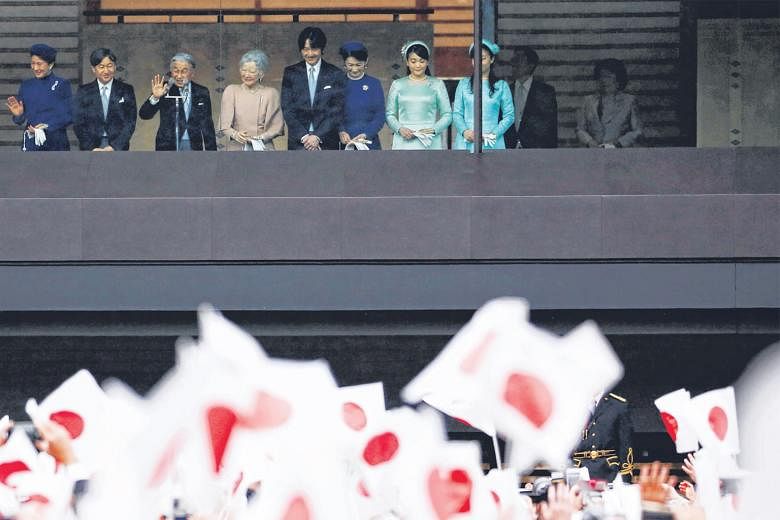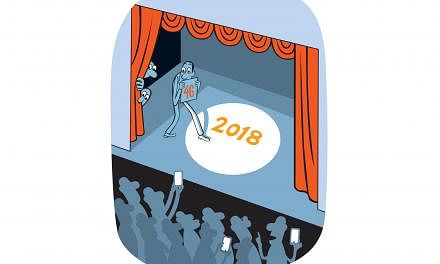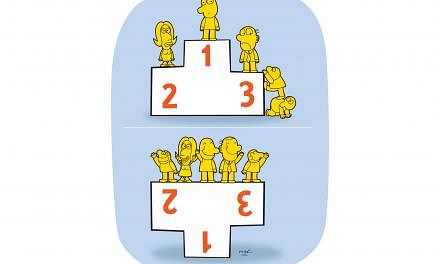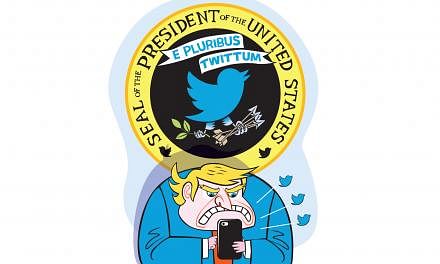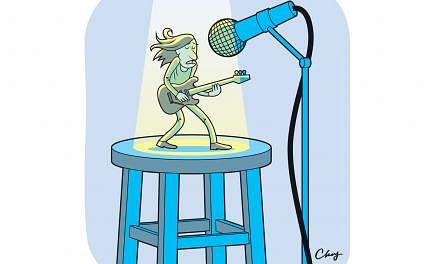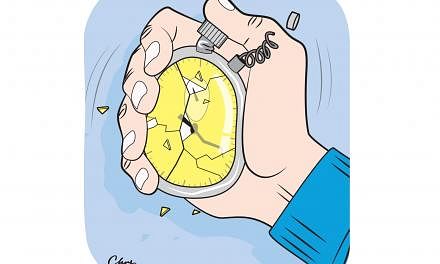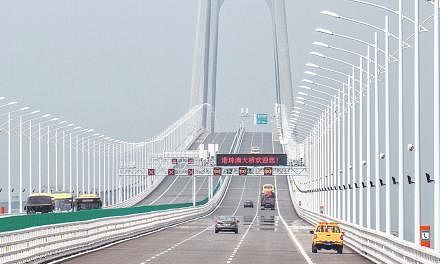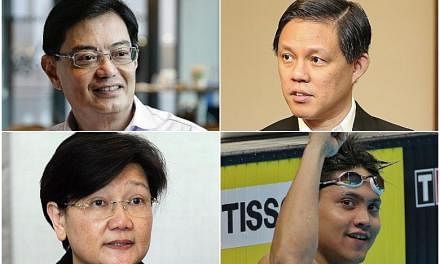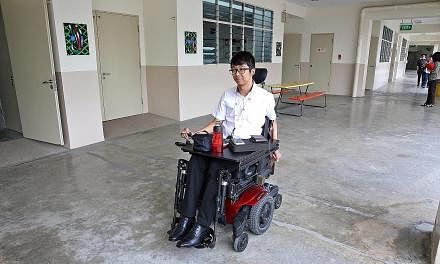1. China-US ties likely to remain fraught
Even if China and the United States do reach a deal in March that reduces trade tensions, bilateral relations will not get better in the new year for the world's two largest economies.
The problems between the countries go beyond unhappiness over unbalanced trade - the US runs a huge trade deficit with China which last year amounted to US$375 billion (S$514 billion) - and unfair trade practices which the US has accused the Chinese of.
There is the growing geopolitical rivalry between the two major powers as China grows stronger in its comprehensive strength and expects to wield greater influence in the international arena.
Another issue is that of ideology, with the US being the world's oldest democracy and China determined to go its own way to develop a socialist country with a state-led economy and a dominant Chinese Communist Party (CCP).
In the US, there has been a policy shift on China, noted Brookings Institution fellow Ryan Hass, propelled by a sense that China is winning in a 21st-century competition for global pre-eminence between the two powers.
To arrest this perceived trend, the administration of President Donald Trump has adopted "an increasingly publicly confrontational and zero-sum approach", he wrote in an article last month on the think-tank's website.
The Chinese, for their part, see Washington's actions as part of a predictable pattern of a declining power trying to hold back the rising power, he added.
Chinese security expert Zhao Xiaozhuo said as much at a forum in Beijing earlier this month .
"The US adopted an engagement and containment policy on China in the past 40 years, but now it is focusing more on containment."
China's stance, as spelt out by President Xi Jinping in a speech on Dec 18 to mark 40 years of reform and opening up, is unlikely to help matters in the coming year.
Domestically, he spoke about the CCP being at the centre of everything, and internationally, he talked about building a new platform for international cooperation with China's Belt and Road Initiative (BRI) as the focus.
With such a Chinese position and no sign from the US of trying to accommodate China's expanding interests and assertive policy, "ideological and political competition between China and the US will continue and may intensify", said Associate Professor Li Mingjiang of the S. Rajaratnam School of International Studies.
Regional rivalry between the two powers will not lessen either.
"We will continue to see problems with regard to the Taiwan issue, the South China Sea issue, economic competition, the BRI versus the Indo-Pacific Strategy (of the US)," said Prof Li.
Still, things are unlikely to get out of hand, said Professor Su Hao of the China Foreign Affairs University. There will be stability amid uncertainty because "both sides don't want to have tense confrontation", he said.
2. Naruhito likely to continue Emperor Akihito's life work
Emperor Akihito will be the first Japanese monarch in 200 years to abdicate the throne when he steps down on April 30, with his elder son Naruhito taking over as monarch the next day.
The royal handover will draw to a close the Heisei (achieving peace) era that started on Jan 8, 1989, the day following the death of Emperor Akihito's father, Emperor Hirohito. The new gengo, or era name, will be announced only weeks before the ascension ceremony.
Emperor Akihito, 85, is a national symbol venerated for his human touch, having travelled the country to uplift those affected by disasters, while also working to heal the wounds of a war waged in his father's name.
As Japan's 126th monarch, Prince Naruhito, who turns 59 on Feb 23, is likely to continue his father's life work while seeking to modernise an ancient imperial institution.
Emperor Akihito raised eyebrows in 2016 when he implied that he wanted to retire, fearing that old age would hinder him from fully performing his role as "the symbol of the State and of the unity of the people", as prescribed in the post-war Constitution.
In the last two centuries, the Chrysanthemum Throne - held by a semi-mythical unbroken lineage dating back to 660BC that is said to be the world's longest - had only changed hands upon death. A one-off law was passed last year to allow the popular Emperor to step down.
Emperor Akihito has touched the hearts of Japanese on his visits to disaster-hit regions, kneeling before commoners and holding their hands - actions that Nagoya University historian Hideya Kawanishi said has been frowned upon by conservatives, who regard him as a demigod.
And while the Emperor's is an apolitical role, there has been a "curious contradiction" between his pacifist beliefs and those of the Liberal Democratic Party govern-ment, which has pursued a more aggressive defence agenda, Dr Kawanishi said.
Emperor Akihito, who made a historic visit to China in 1992, is seen as more contrite and remorseful than Prime Minister Shinzo Abe over Japan's wartime aggression.
Dr Kawanishi expects the Oxford-educated Naruhito, an advocate for environmental issues, to actively follow in his father's footsteps while bringing a modern, more global perspective to the throne.
Next year's royal handover will also likely spark discussions on the role of female royals in a shrinking imperial family. Princesses lose their royal status when they marry commoners and are barred from ascending the throne. There are now only 18 imperial family members, 13 of whom are women.
After Prince Naruhito becomes emperor, there will be only three heirs to the throne: his younger brother, Prince Akishino, 53; his nephew, Prince Hisahito, 12; and his uncle, Prince Hitachi, 83.
Walter Sim
3. Uphill battle for Modi
Prime Minister Narendra Modi has travelled the world to raise India's profile, ushered in one of the biggest reforms of modern-day India with a goods and services tax, and presided over one of the world's fastest-growing economies.
Yet, as the popular leader heads into a general election next year, he is going to find it difficult to replicate the landslide win that brought him to power in 2014, said analysts.
There is nationwide distress among farmers over low prices for their produce, and a lack of jobs that is creating disenchantment among different groups, including the Dalits, who are at the bottom of the caste hierarchy and have been the target of Hindu nationalist groups.
"It is very obvious it is going to be a challenging election for Modi," said Mr Badri Narayan Tiwari of the G.B. Pant Social Science Institute in Uttar Pradesh state.
"Modi is still popular, but people are not happy with the benefits from his BJP (Bharatiya Janata Party) government. There is increasing disenchantment."
Mr Modi came to power in 2014 promising good days after a decade of Congress Party rule, which ended with corruption scandals and poor governance.
With his fiery oratory and his record of converting the western state of Gujarat into an economic powerhouse, Mr Modi captured the imagination of the country.
For most of his term, he and the BJP have dominated the political discourse and seemed invincible.
The BJP won nearly every state election, including in the politically important state of Uttar Pradesh, sending 80 MPs to Parliament - the largest representation of any state.
Yet, that air of invincibility has been shattered this year.
In the biggest electoral defeat of the last four years, the BJP lost this month in its stronghold states of Madhya Pradesh, Rajasthan and Chhattisgarh to Congress.
Anti-incumbency sentiments and agrarian distress are seen to have led to BJP's defeat despite Mr Modi's popularity.
Still, state election wins in India are fought on local issues, with a Nomura analysis noting that Mr Modi maintains overwhelming popularity over his competitors.
However, success has reinvigorated the Congress Party and the opposition, with talks gaining momentum on forming a grand alliance to take on Mr Modi.
Analysts now expect major announcements from the Modi government in the next few months before the elections.
Said Dr Sandeep Shastri, a political analyst and pro-vice-chancellor of Jain University: "The poorer segments are clearly disenchanted.
"In the next three months, (the government) will try to recali-brate, and we can expect some high-ticket decisions (to woo the disenchanted)."
Nirmala Ganapathy
